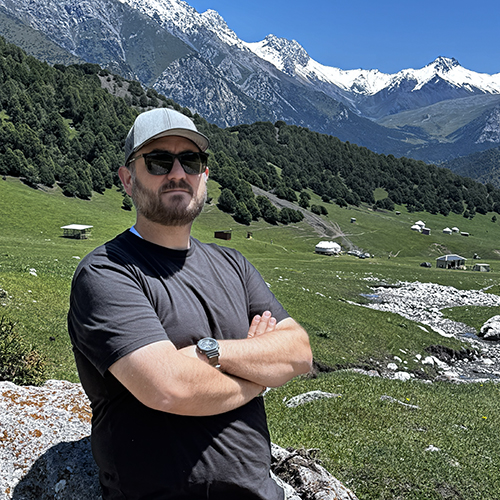The College of Arts and Sciences mourns the passing of Benjamin “Ben” Hall, emeritus professor of genome sciences and biology. Professor Hall served as a university faculty member since 1963, and continued his work with students and faculty and gave back to the UW community long after retirement.

During his 38 years in genetics, Professor Hall made many key discoveries, including the patented invention “Expression of Polypeptides in Yeast” which the UW licensed for the production of recombinant proteins like human insulin and those used in vaccines against hepatitis B virus and human papillomavirus. His more recent research focused on understanding the speciation and evolution in the genus Rhododendron. Hall was named a Guggenheim Fellow and a Fellow of the National Academy of Sciences, and in 2004 was named the UW’s first Investor of the Year.
In a blog post, UW President Ana Mari Cauce praised Professor Hall’s legacy.
“Ben’s legacy is monumental, but what I, and his colleagues remember most about him was his insatiable and fundamental scientific curiosity about everything from the building blocks of life to whole ecosystems,” wrote Cauce. “His life’s work is a testament to the power and importance of curiosity-driven research, and yet he was also a pioneer in translating basic research into commercial application at a time when many in the academic world were still skeptical of a pipeline between academia and industry.”
Professor Hall and his wife Margaret’s visionary leadership and philanthropy helped the Department of Biology grow into a vibrant center of research and teaching. Through the creation of the Benjamin Hall Endowed Chair in Basic Life Sciences, the Benjamin Hall Endowment for Graduate Student Excellence in Biology and Plant Biology Fellowships, the Halls have empowered numerous undergraduate and graduate students, postdoctoral researchers and faculty to forge their own paths as scientists.
“In my 35 years at the University of Washington, nobody has had a greater positive impact than Ben,” said Toby Bradshaw, chair of the Department of Biology. “His vibrant intellectual, humanitarian, and philanthropic legacy live on in the scientists and students that he inspired, and in the millions of lives saved by his pioneering basic research on the molecular mechanisms of protein synthesis.”
His vibrant intellectual, humanitarian, and philanthropic legacy live on in the scientists and students that he inspired, and in the millions of lives saved by his pioneering basic research on the molecular mechanisms of protein synthesis.
In support of future scientific enterprise, the Halls also provided critical funding for the completion of the Life Sciences Building (LSB) to ensure that the Department of Biology will be a nexus for boundary-pushing research and teaching for generations to come. The impact of their generosity is embodied in the stellar scientists they have supported, in fields such as conservation, technology, human health, biotechnology, and more. The Halls attended the ribbon-cutting ceremony for the LSB this past September, and Professor Hall received an official key to the building from President Cauce.
The University of Washington was pleased to honor the Halls as Presidential Laureates in 2017 for their generosity in providing vital resources to attract and retain faculty and students of the highest caliber and to support capital investment in state-the-art research facilities.
More Stories

AI in the Classroom? For Faculty, It's Complicated
Three College of Arts & Sciences professors discuss the impact of AI on their teaching and on student learning. The consensus? It’s complicated.

Through Soil Science, an Adventure in Kyrgyzstan
Chemistry PhD alum Jonathan Cox spent most of 2025 in Kyrgyzstan, helping farmers improve their soil—and their crops—through soil testing.

A Sports Obsession Inspires a Career
Thuc Nhi Nguyen got her start the UW Daily. Now she's a sports reporter for Los Angeles Times, writing about the Lakers and the Olympics.